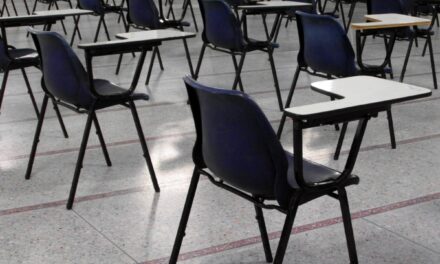SAN DIEGO–At its first regular meeting since COVID-19 forced school closures effective March 16, the San Diego Unified Board of Education approved critical initiatives to help students, employees and schools continue to function amid this pandemic.
At the meeting conducted remotely in accordance with social distancing protocols, the board unanimously approved the following items:
Hazard Pay: Time-and-a-half pay will be offered retroactive to March 16 to employees serving as disaster service workers in the effort to distribute computers and meals to students.
Grade Protection: A policy to be in place while teachers and students are engaged in Distance Learning stipulates students will be “held harmless,” and will not receive grades that are lower than their grades prior to school closures.
Emergency Funding: The board called on its Congressional delegation of U.S. Senators, members of the House of Representatives, and Gov. Gavin Newsom to prioritize school funding to stabilize public education in light of the unprecedented COVID-19 crisis which has negatively affected the ability of schools to provide fundamental educational services to its students.
The board approved a resolution from a coalition of national education organizations calling on legislators to provide emergency financial support for schools nationwide in the wake of the COVID-19 pandemic. The groups have called for $200 billion to begin providing meaningful relief to our nation’s public schools. The coalition estimates additional relief totaling $350 billion will likely be needed to ensure public school funding is stabilized over the next two years.
“These funds are not a wish list. They’re a needs list,” says Board Vice President Richard Barrera. “In the months and years ahead, public school students should not have to bear the overwhelming brunt of this emergency. They deserve to have their education valued and protected by lawmakers.”
Superintendent Cindy Marten provided an update on the soft launch of the district’s Distance Learning plan, now in its second week. A majority of students will begin graded online instruction on April 27, when the new grading policy will also go into effect.
“A crisis like this one may change the way we operate, but it will never change who we are,” Marten said. “How we operate has definitely changed. We are on track to distribute well over 40,000 computers to students across the city, and we have provided close to 400,000 meals to families in need. And now we are getting ready for the biggest change of all. We are about to open a classroom in the clouds for all our students.”
Teachers will continue to assess student learning, even if state and district testing is suspended during the period of closure. Classroom assessments may inform decisions on further support and resources during distance learning.



